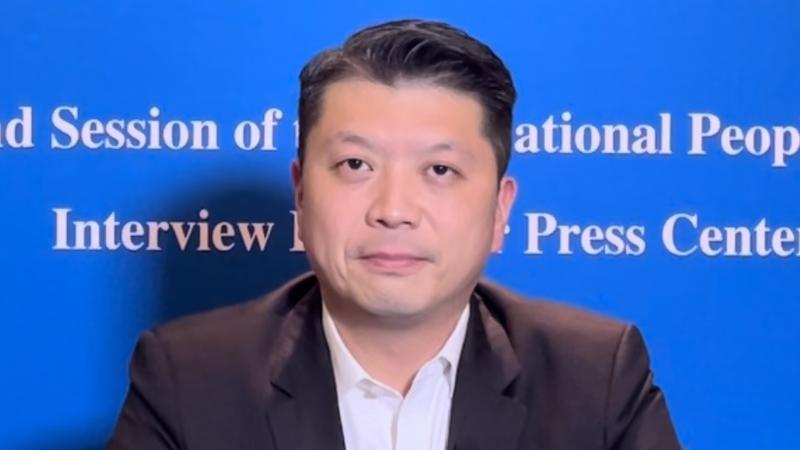 Kevin Ho King-lun, a Macao deputy to the National People’s Congress, poses for a photo during an interview with China Daily on the sidelines of the two sessions in Beijing, China, March 7, 2024 . (XI TIANQI / CHINA DAILY)
Kevin Ho King-lun, a Macao deputy to the National People’s Congress, poses for a photo during an interview with China Daily on the sidelines of the two sessions in Beijing, China, March 7, 2024 . (XI TIANQI / CHINA DAILY)
Macao can depend on Hengqin Island’s development to push for the special administrative region’s long-standing goal of diversifying its economy, which traditionally has been heavily reliant on the gaming and tourism industries, says Kevin Ho King-lun – a Macao deputy to the National People’s Congress.
Ho, who’s also president of the Industry and Commerce Association of Macao, said the Guangdong-Macao In-depth Cooperation Zone on Hengqin can provide a lot of space for Macao to explore new opportunities in other sectors like exhibitions and finance, as well as healthcare.
Ho emphasized the need for the Macao to diversify its economy, saying the SAR should step up developing four key industries -- healthcare, modern finance, high technology, and the exhibitions, culture and sports sector -- to achieve long-term stability and prosperity
He said this would help prop up Macao’s economy, which has long depended on the entertainment and tourism businesses.
Ho, who’s attending the annual gathering of the nation’s top legislature in Beijing, said in his motions submitted to the legislature, he emphasized the need for the Macao to diversify its economy, saying the SAR should step up developing four key industries -- healthcare, modern finance, high technology, and the exhibitions, culture and sports sector -- to achieve long-term stability and prosperity.
The city last year unveiled its Development Plan for Appropriate Economic Diversification of the Macao Special Administrative Region (2024-2028), proposing a “1+4” strategy for development. The “1” represents Macao’s renewed tourism and leisure business, while “4” denotes the four key sectors mentioned.
ALSO READ: Change in Hengqin zone to assist Macao integration
Ho noted that Macao’s contribution is neither determined by the size of the city’s land area nor its population, but defined by what roles it can play. Thus, he proposed strengthening collaboration between Macao and Hengqin. Macao would be responsible for research and development, while Hengqin would take charge of production, and the outcomes would be shared between them.
Ho believes this would be an ideal plan that could improve market integration in the Guangdong-Hong Kong-Macao Greater Bay Area and provide strong guidance for manufacturing in Macao.
The Hengqin cooperation zone began a “close-loop” operation on Mar 1 this year. Under the new arrangement, goods that can meet certain conditions will be exempt from taxes when entering the cooperation zone from Macao, while other goods will be bonded. The new tax policy is expected to expedite the flow of logistics, people, funds and information between Hengqin and Macao.
Ho hopes that Macao enterprises can seize the business opportunities on Hengqin, such as traditional Chinese medicine, photovoltaic and hydrogen energy, creating an agglomeration effect in the zone to drive the diversification of Macao’s economy.
READ MORE: Bonds between Macao, Hengqin strengthened
He said the National Games, to be co-hosted by Guangdong province, Hong Kong and Macao next year, will be conducive to accelerating the integration of the Greater Bay Area, while displaying the 11-city cluster’s capacity to organize mega events.


